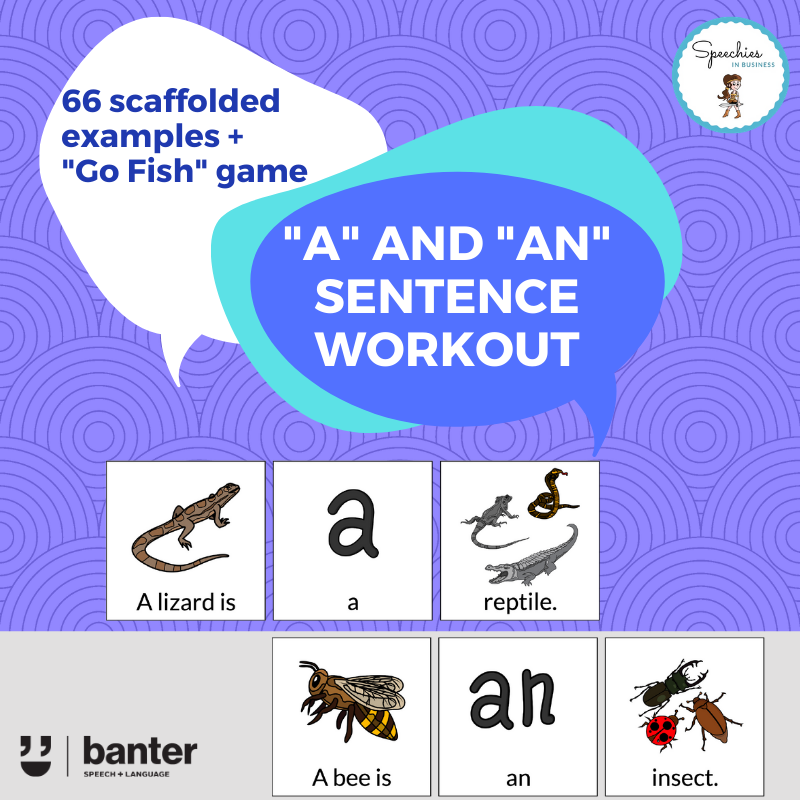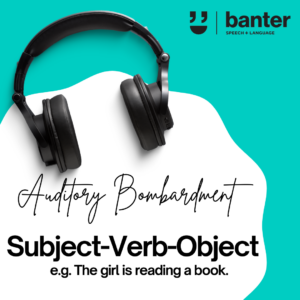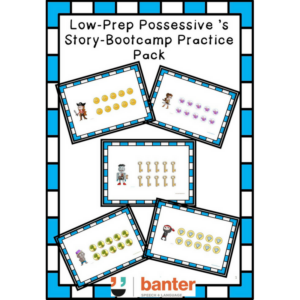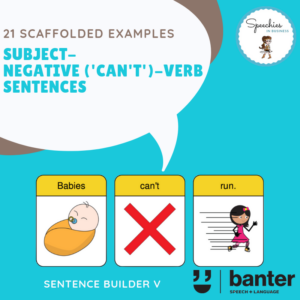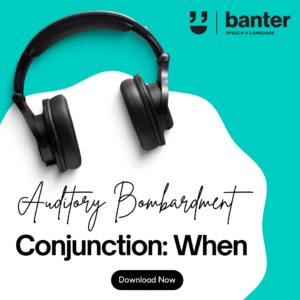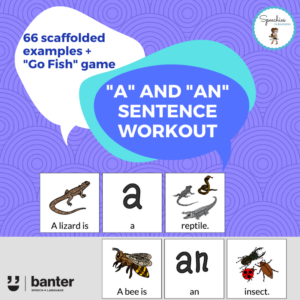(L261) Sentence workout: indefinite articles “a” and “an” plus ‘Go Fish’ game
$6.99 including GST
At around 36-42 months of age, typically developing students start to understand and to use the indefinite articles “a” and “an” appropriately. But some students need a bit of help to acquire them.
In this low-preparation 49-page pack, we provide structured practice with 66-scaffolded examples to help students learn when to use “a” and “an” in sentences.
We finish off with a ‘Go Fish’ sentence practice game to promote learning.
Description
“I see a tiger; I see an elephant”. Low-prep “a” and “an” sentence workouts for indefinite articles – includes structured sentence imitation practice, followed by a game-based sentence practice activity to promote learning.
At around 36-42 months of age, typically developing students start to understand and to use the indefinite articles “a” and “an” appropriately. But some students need a bit of help to acquire them.
The basic rule
In English, we use the indefinite article “a” before a word starting with a consonant (e.g. “a banana” or “a tiger”) and the indefinite article “an” before a word starting with a vowel (e.g. “an orange” or “an aardvark”).
Like most rules in English, there are exceptions, e.g. for some words starting with /h/, e.g. we might refer to “an historical event”.
Do we need to teach the rule?
Many students pick up the a/an convention without needing to be taught it. But some students – including some students with developmental language disorder, Autism Spectrum Disorder, and/or learning disorders – don’t. Nor do some students who are learning English as an additional language.
Some students benefit from seeing the pattern in action, and hearing a/an used in sentences.
In this low-preparation 49-page pack, we provide structured practice with 66-scaffolded examples to help students learn when to use “a” and “an” in sentences.
We finish off with a ‘Go Fish’ sentence practice game to promote learning.
Related resource:

